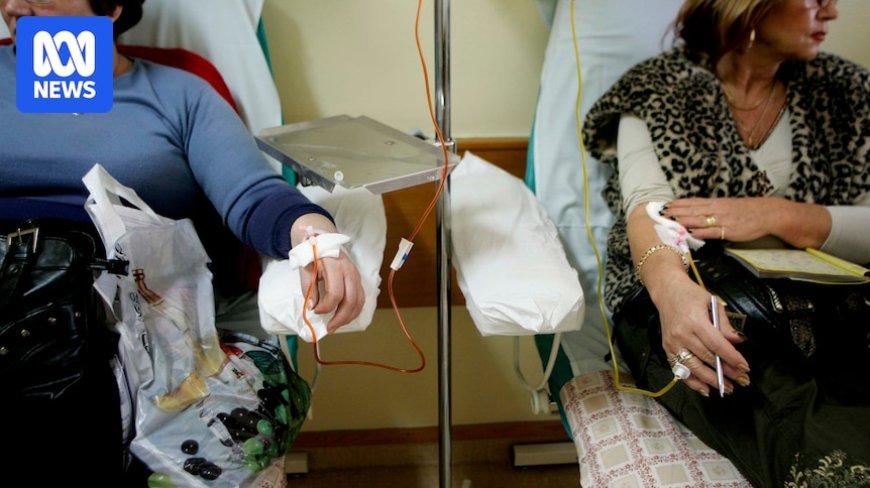Study Shows Cancer Control Measures Save 230,000 Australian Lives
Research led by the Cancer Council of Victoria reveals that over 230,000 deaths have been prevented in Australia due to advancements in cancer screening and smoking reduction strategies. The study emphasizes the importance of ongoing efforts to control cancer rates and highlights the success of prevention measures in decreasing mortality rates for certain types of cancers.

More than 230,000 lives have been saved in Australia due to cancer control measures over the past six decades, new research shows. A study led by the Cancer Council of Victoria found advances in cancer screening and strategies to reduce smoking, in particular, had prevented thousands of deaths.
\"What we're seeing is a snowball effect — we're now seeing the result of investments made in cancer control over the many decades,\" lead researcher Associate Professor Brigid Lynch said. Cancer-related deaths are decreasing due to advances in prevention, screening, and treatment. Although there has been a significant decline in deaths related to certain types of cancers, not all were following the trend.
With cancer rates expected to increase about 50 per cent by 2044, researchers said the study highlighted the need for measures to help keep the disease under control. Cancer remains Australia's leading cause of death, accounting for about 17 per cent of the national disease burden.
There were an estimated 169,000 cases of cancer diagnosed in 2024, according to the Australia Institute of Health and Welfare. The rates were rising due to factors such as an ageing and growing population. Although cases were increasing, the individual risk of dying from cancer has dropped sharply. Since the 1980s, the risk has fallen by 11 per cent for women and 20 per cent for men, the study found.
Researchers said the dramatic downturn in lung cancer-related deaths was due to tobacco control initiatives. The research, published in the Australian and New Zealand Journal of Public Health, analysed cancer-related death rates from 1950 to 2018. It found that more than 230,000 deaths have been avoided to date, with more than 65 per cent in the final 10 years of the study period (2009 to 2018).
Associate Professor Lynch said there was a substantial decrease in the mortality from lung cancer. The rates have been dropping since the 1980s, which she said reflected the success of anti-smoking campaigns. Mortality rates for breast and cervical cancer had also dropped \"markedly\", Associate Professor Lynch said. A decline in cervical cancer deaths since the 1960s has been largely attributed to screening and human papillomavirus (HPV) vaccination.
The greatest number of deaths averted was for stomach cancer. Increased screening has played a large role in saving the lives of people diagnosed with certain cancers. Overall, the report found a combination of factors was helping to curb deaths, including advances in prevention, screening, and treatments. Liver cancer deaths have more than tripled since the 1980s, mainly due to obesity, alcohol use, and metabolic disease.
Mortality rates for brain cancer were also continuing to rise. While other some cancer sites, such as nervous system cancers, leukaemia and pancreatic cancer, had remained relatively stable. Associate Professor Lynch said Cancer Council Victoria was leading the world's largest study of risk factors into glioma, an aggressive form of brain cancer.
With Australia's ageing and growing population, a significant increase of cancer diagnoses is expected over the coming years. Associate Professor Lynch said it was crucial to learn from the success of control measures and prevention campaigns. \"It's vital that society increases investment in cancer prevention and early detection efforts to help save lives,\" she said.
Professor Adrian Esterman, the chair of bio-statistics at the University of South Australia, said the study highlighted the need for continued investment in cancer prevention, early detection and new treatments. He noted several major recent advancements in Australia, such as a new national cancer screening programs and enhanced reading of mammograms using AI. The study involved the Cancer Council Victoria, The University of Melbourne and Monash University, Baker Heart and Diabetes Institute. It did not receive any specific grants from funding agencies.
According to the source: Australian Broadcasting Corporation.
What's Your Reaction?
 Like
0
Like
0
 Dislike
0
Dislike
0
 Love
0
Love
0
 Funny
0
Funny
0
 Angry
0
Angry
0
 Sad
0
Sad
0
 Wow
0
Wow
0














































































































































































